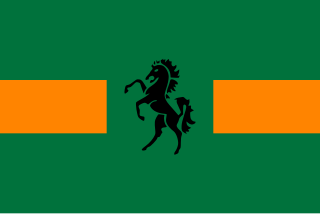The following is a list of the chief ministers of the South African apartheid era Bantustan of QwaQwa , also known as the Basotho ba Borwa.
The following is a list of the chief ministers of the South African apartheid era Bantustan of QwaQwa , also known as the Basotho ba Borwa.
Dates in italics indicate de facto continuation of office.
| Tenure | Incumbent |
|---|---|
| Basotho ba Borwa | |
| April 1969 to 1 October 1971 | Wessels Mota, Chief Executive Officer |
| Basotho QwaQwa | |
| 1 October 1971 to 1 November 1974 | Wessels Mota, Chief Executive Councillor |
| QwaQwa (Self-Rule) | |
| 1 November 1974 to 19 May 1975 | Wessels Mota, Chief Minister |
| 19 May 1975 to 26 April 1994 | Tsiame Kenneth Mopeli, Chief Minister |
| QwaQwa re-integrated into South Africa on 27 April 1994 | |
The Republic of South Africa is a parliamentary representative democratic republic. The President of South Africa serves both as head of state and as head of government. The President is elected by the National Assembly and must retain the confidence of the Assembly in order to remain in office. South Africans also elect provincial legislatures which govern each of the country's nine provinces.

Transkei, officially the Republic of Transkei, was an unrecognised state in the southeastern region of South Africa from 1976 to 1994. It was, along with Ciskei, a Bantustan for the Xhosa people—and operated as a nominally independent parliamentary democracy. Its capital was Umtata.

A Bantustan was a territory that the National Party administration of South Africa set aside for black inhabitants of South Africa and South West Africa, as part of its policy of apartheid. By extension, outside South Africa the term refers to regions that lack any real legitimacy, consisting often of several unconnected enclaves, or which have emerged from national or international gerrymandering.

QwaQwa was a bantustan ("homeland") in the central eastern part of South Africa. It encompassed a very small region of 655 square kilometres (253 sq mi) in the east of the former South African province of Orange Free State, bordering Lesotho. Its capital was Phuthaditjhaba. It was the designated homeland of more than 180,000 Sesotho-speaking Basotho people.

Phuthaditjhaba is a town in the Free State province of South Africa. Phuthaditjhaba is a seSotho name that means meeting place of the tribes. It is located on the banks of the Elands River. It also located in a section of Drakensberg mountains . it is bordered by the province of KwaZulu-Natal to the south east and the independent country of Lesotho to the south west. Phuthaditjhaba was capital of the bantustan or homeland of QwaQwa. When apartheid ended, Phuthaditjhaba became part of the Free State province.

Ciskei was a Bantustan for the Xhosa people-located in the southeast of South Africa. It covered an area of 7,700 square kilometres (3,000 sq mi), almost entirely surrounded by what was then the Cape Province, and possessed a small coastline along the shore of the Indian Ocean.

Chief Kaiser Daliwonga Mathanzima, misspelled Matanzima, was the long-term leader of Transkei. In 1950, when South Africa was offered to establish the Bantu Authorities Act, Matanzima convinced the Bunga to accept the Act. The Bunga were the council of Transkei chiefs, who at first rejected the Act until 1955 when Matanzima persuaded them.
Tsiame Kenneth Mopeli was the former Chief Minister of the South African bantustan of QwaQwa.
Ovamboland, or Ovambo, was a Bantustan or "homeland" in South West Africa set aside for the Ovambo people during the apartheid period.
The QwaQwa National Park is part of the Golden Gate Highlands National Park and the Maloti-Drakensberg Park and comprises the former Bantustan (homeland) of QwaQwa. It is approximately 60 km from Harrismith on the Golden Gate Road (R712) and formed an integral part of the Highlands Treasure Route.
Parliamentary elections were held in QwaQwa between 19 and 21 March 1975. The Dikwankwetla Party won 19 of the 20 elected seats.
Parliamentary elections were held in QwaQwa between 19 and 21 April 1980. The Dikwankwetla Party won all 20 of the elected seats.
Parliamentary elections were held in QwaQwa in 1985. The result was a victory for the Dikwankwetla Party.
Parliamentary elections were held in QwaQwa in 1990. The result was a victory for the Dikwankwetla Party.

The Transkei Defence Force (TDF) was established during March 1981, from the 141 Battalion of the South African Defence Force (SADF). It was the defence force of the Republic of Transkei, a nominally independent bantustan during the Apartheid era of South Africa.